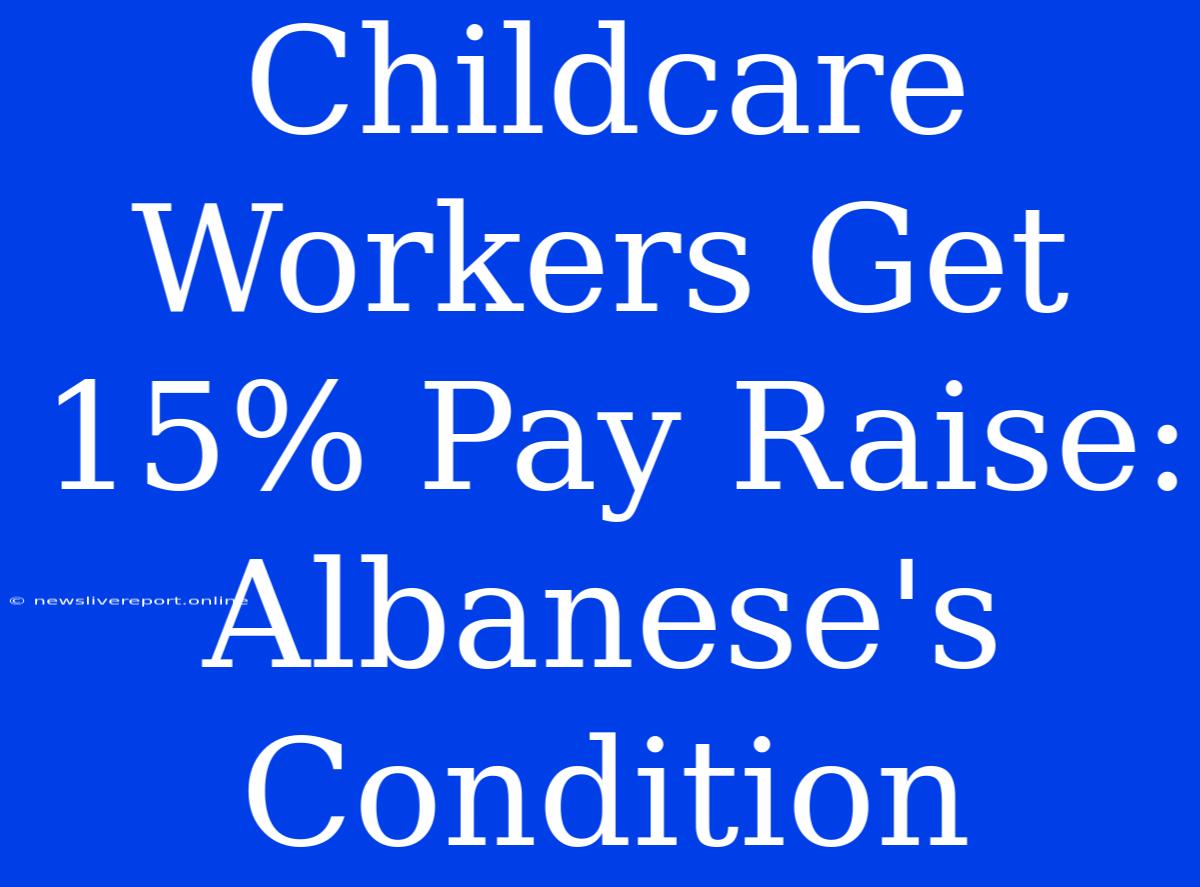Childcare Workers Get 15% Pay Raise: Albanese's Condition Sparks Debate
The Australian government has announced a 15% pay raise for childcare workers, a move hailed by unions and childcare providers as a long-overdue recognition of their vital work. However, the raise comes with a condition: childcare providers must increase the number of hours available to families. This move has sparked debate, with some praising the government for taking action on childcare affordability, while others express concerns about the impact on worker well-being and potential pressures on the already stretched childcare workforce.
Here's a breakdown of the situation:
The 15% Pay Raise: A Long-Awaited Victory?
Childcare workers are among the lowest paid professionals in Australia, with many earning below the minimum wage. Their work is demanding, requiring high levels of care, patience, and expertise in child development. The 15% pay raise, which is set to take effect in July 2024, is a significant step towards addressing the chronic underpayment issue.
Unions and childcare providers are celebrating the raise as a major victory. They argue it will help attract and retain skilled workers, improving the quality of care for children.
The Condition: More Hours for Families
However, the government has attached a condition to the pay raise: childcare providers must increase the number of hours available to families. This means longer operating hours, more weekend availability, and potentially fewer gaps in childcare services.
The government argues this move will improve affordability for families by providing more choice and flexibility. They believe this will encourage more parents, particularly mothers, to participate in the workforce.
The Concerns: Impact on Workers and Quality
However, the condition has raised concerns about the potential impact on childcare workers. Will the increased hours lead to increased workload, stress, and burnout? Will it force childcare providers to hire more staff, which could lead to a decrease in quality and continuity of care?
Some childcare providers also worry about the feasibility of meeting the new hours requirement. They argue that finding and retaining qualified staff will remain a challenge, especially in areas facing staff shortages.
What's Next?
The government's decision on childcare wages is a significant move, but it's only the beginning of a complex discussion. The impact of the pay raise and the condition on hours will unfold over time. The debate about childcare affordability and the role of government in supporting working families is likely to continue.
Key takeaways:
- Childcare workers are receiving a 15% pay raise, a major victory after years of underpayment.
- The raise comes with a condition: childcare providers must increase the number of hours available to families.
- This condition has raised concerns about the impact on workers and the quality of care.
- The debate about childcare affordability and the government's role in supporting working families continues.

